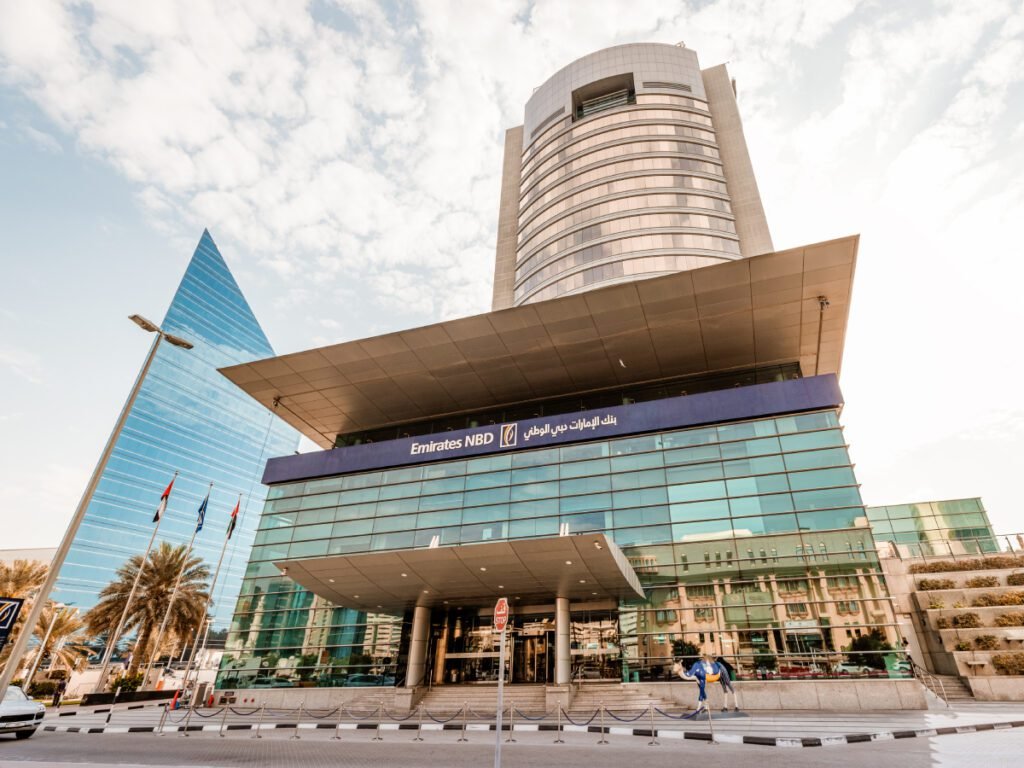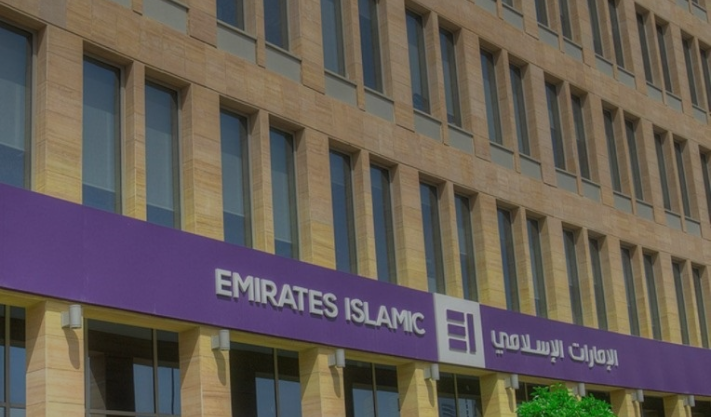The Emirates Islamic Bank delisting from the Dubai stock market marks a significant development in the UAE’s banking landscape. The bank has announced plans to withdraw its shares from the public market, moving towards becoming a privately held institution. This decision reflects a strategic shift aimed at accelerating growth, enhancing flexibility, and repositioning the bank for future success in the competitive Islamic finance sector.
This article explains why Emirates Islamic Bank is delisting, what it means for investors, the market impact, and what the future holds for the bank.
Why Is Emirates Islamic Bank Delisting from the Dubai Stock Market?
Emirates Islamic Bank delisting is primarily motivated by the bank’s desire to streamline operations and focus on long-term growth away from the pressures of public market scrutiny. When a company is listed on a stock exchange, it must regularly publish financial results, follow strict disclosure rules, and respond to market expectations every quarter.

For Emirates Islamic Bank, going private means it can take a longer view on its investments and business strategies without worrying about short-term share price fluctuations. The delisting will also reduce regulatory costs and administrative burdens, allowing the bank to direct more resources towards innovation and customer service.
The bank’s management has emphasized that this move will support more agile decision-making and help the bank respond faster to changing market dynamics in the UAE and the wider Gulf region.
What Does Delisting Mean for Emirates Islamic Bank’s Investors?
The announcement of Emirates Islamic Bank delisting raised questions for many investors who hold the bank’s shares. Once the bank is delisted, these shares will no longer be traded on the Dubai stock market, which means investors won’t be able to buy or sell shares through the usual public exchanges.
However, the bank has assured shareholders that it will carry out a fair buyback of shares. The compensation will be based on the most recent valuation of the bank’s stock, ensuring investors receive fair value for their holdings.
While delisting can sometimes create uncertainty, the bank is committed to providing clear communication and a transparent timeline to help investors through the transition. This approach aims to maintain investor confidence despite the shift away from public trading.
Impact of Emirates Islamic Bank Delisting on the Dubai Stock Market

Emirates Islamic Bank is one of the key players in the UAE’s Islamic banking industry. Its decision to delist is notable as it reduces the number of listed Islamic banks on the Dubai stock exchange. This change has sparked discussions among market watchers about whether other banks might consider similar moves.
Some experts believe that Emirates Islamic Bank’s delisting could signal a trend towards privatization among UAE financial institutions seeking more operational freedom. This trend might attract private investors looking for deeper involvement in banks without the constraints of public ownership.
At the same time, the reduced number of listed banks may impact market liquidity and investor options, at least in the short term. Regulators will likely monitor the situation carefully to balance market stability and growth.
How Emirates Islamic Bank Will Benefit from Delisting
By delisting, Emirates Islamic Bank gains several important advantages:
- Increased Flexibility: The bank can pursue growth plans without the need to meet quarterly earnings expectations from public investors.
- Cost Savings: Delisting reduces the costs of compliance, reporting, and governance required for listed companies.
- Focus on Innovation: Freed from some regulatory constraints, the bank can invest more in digital banking technologies and customer service improvements.
- Strategic Partnerships: Privatization enables the bank to restructure ownership and build stronger partnerships with key investors who support long-term growth.
- Market Expansion: The bank can more easily explore new markets and product lines, particularly in the growing field of Islamic finance, which has seen rising demand across the Middle East and beyond.
Background: Emirates Islamic Bank’s Role in UAE’s Islamic Finance Sector
Emirates Islamic Bank has built a strong reputation as a leading Islamic bank in the UAE. Founded to provide Sharia-compliant banking services, the bank offers a wide range of products, including personal banking, business financing, investment solutions, and digital banking services.
The Islamic finance sector is a growing market worldwide, with many customers seeking banking services that comply with Islamic laws. Emirates Islamic Bank has been a pioneer in this space within the UAE, helping the country become a hub for Islamic financial services.
Its delisting from the public market will not change its commitment to Islamic banking principles. Instead, the move is expected to allow the bank to better invest in innovation and expand its reach to new customers.
What Experts Say About the Emirates Islamic Bank Delisting
Financial analysts have weighed in on the impact of Emirates Islamic Bank delisting. Many see it as a strategic move to strengthen the bank’s position and improve its ability to compete.
A market analyst said, “Delisting allows Emirates Islamic Bank to escape the short-term pressures of public markets. This flexibility is vital for Islamic banks looking to innovate in a competitive environment.”
Another expert noted that “privatization could attract long-term investors who share the bank’s vision for growth and expansion, particularly in digital banking and cross-border Islamic finance.”
What the Delisting Means for Customers and the Public
For the bank’s customers, the Emirates Islamic Bank delisting should have little immediate impact. The bank will continue to offer its full range of services without interruption. In fact, customers may benefit from the bank’s renewed focus on digital innovation and improved service delivery made possible by the new strategy.
The public might notice fewer updates about the bank’s financial results since it will no longer be required to publish quarterly reports. However, the bank has promised to maintain transparency and provide necessary updates to maintain trust.
Timeline and Process of the Delisting
The delisting process is expected to take place over several months. Emirates Islamic Bank will work closely with the Dubai Financial Market (DFM) and regulatory authorities to ensure all legal and financial steps are properly followed.
Shareholders will be informed well in advance about how to sell their shares back to the bank or transfer ownership. The bank has committed to a fair and orderly exit from the public market.
After delisting, Emirates Islamic Bank will continue as a privately owned entity, focusing on long-term business goals and market leadership.
Looking Ahead: Emirates Islamic Bank’s Future Plans

Following the delisting, Emirates Islamic Bank is expected to pursue several growth initiatives:
- Digital Transformation: Investing heavily in technology to enhance online and mobile banking.
- New Product Launches: Developing innovative Sharia-compliant financial products for personal and corporate clients.
- Regional Expansion: Exploring opportunities in new markets within the Gulf Cooperation Council (GCC) and beyond.
- Sustainability: Incorporating environmental and social governance (ESG) principles into its operations.
These plans aim to position Emirates Islamic Bank as a modern, customer-centric institution prepared for the future of Islamic finance.
Conclusion: A New Era Begins with Emirates Islamic Bank Delisting
The Emirates Islamic Bank delisting from the Dubai stock market marks a turning point for the bank and the UAE’s Islamic banking sector. This strategic decision offers the bank freedom to innovate, grow, and better meet the evolving needs of its customers.
While the transition may bring some challenges for shareholders and the market, the bank’s focus on long-term value creation promises positive outcomes. Emirates Islamic Bank is set to remain a key player in Islamic finance, driving progress and shaping the future of banking in the UAE and the region
Do follow UAE Stories on Instagram
Read More: OceanQuest Deep Ocean Discovery: Saudi Arabia’s Bold New Step













